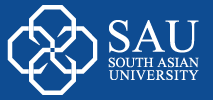The South Asian University will focus overwhelmingly on research and post-graduate programmes, though a small Faculty of Under-graduate Studies will also come up. The University ultimately plans to create 12 post-graduate Faculties, 6 science and 6 non-science. A flagship Institute of South Asian Studies will also be established in the University.
FMCS
Faculty of Mathematics & Computer Science
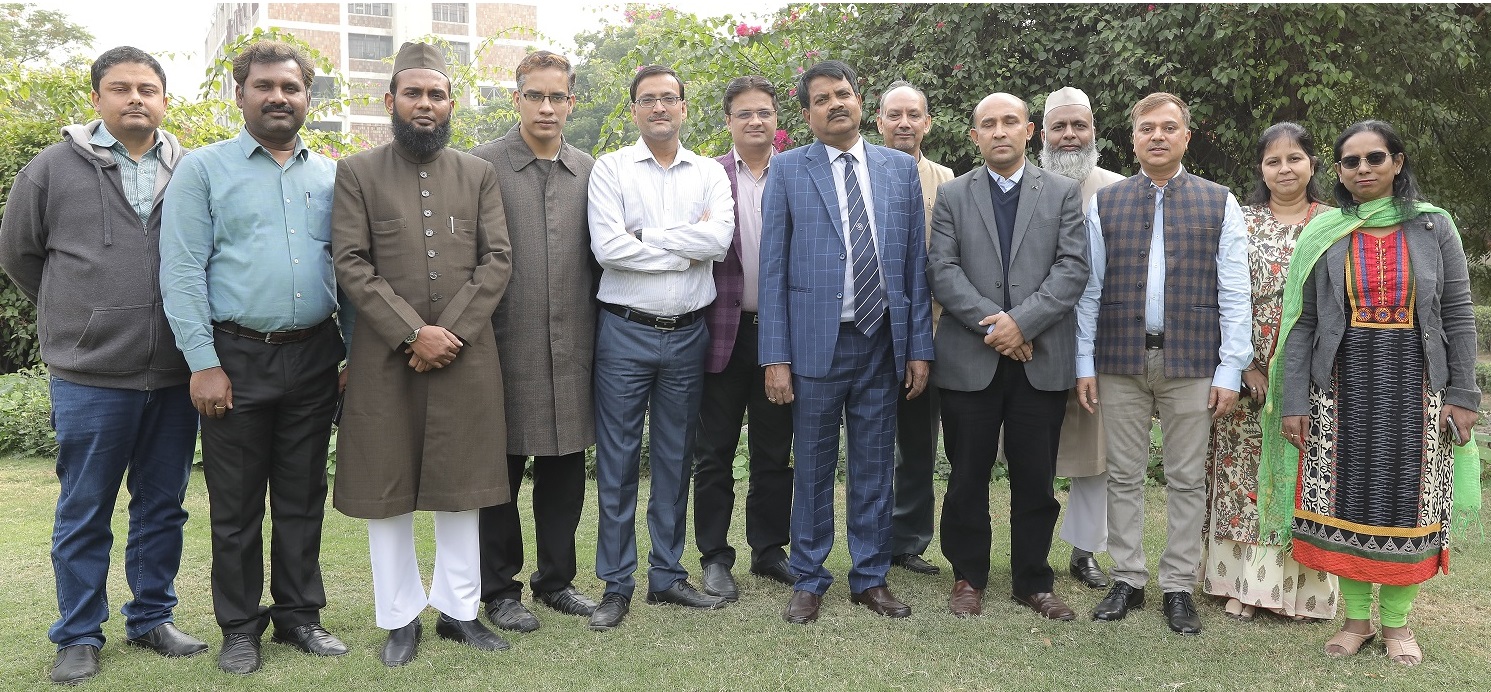
Faculty of Mathematics & Computer Science
Vision
“Philosophy is written in this grand book − I mean the universe the universe − which stands continually open to our gaze. But the book cannot be understood unless one first learns to comprehend the language and read the characters in which it is written. It is written in the language of mathematics.” (Galileo Galilei, in The Assayer, 1623)
Building on the legacy of Galileo, the work of generations of scientists and engineers has shown that mathematical representations and reasoning are unavoidable when attempting to understand physical processes. At this point, we believe that a very persuasive case can similarly be constructed for the proposition that Mathematics is unavoidable in the application of Computer Science. This is already evident from the application of computation to areas that have seen an explosive growth of experimental and observational data (like Computational Biology, Financial Economics, Text Analytics, Social Network Analysis, Tele-communications and so on).
The Faculty of Mathematics and Computer Science in the SAU aims to be a symbiosis of Mathematics and Computer Science. We envisage that Mathematics will act as the bedrock for well founded computation, which will in turn be at the heart of all inter-disciplinary activity involving Computer Science.
The Faculty has two departments:
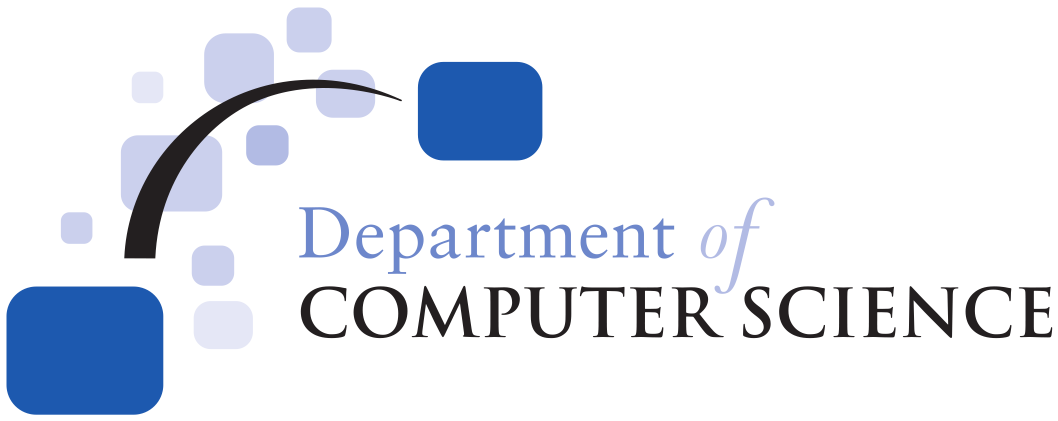
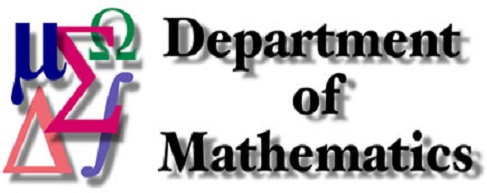
While postgraduate teaching in the FMCS will attempt a comprehensive coverage of the disciplines of mathematics as well as computer sciences, faculty will be recruited so as to enable the Faculty to conduct research in modern and upcoming research areas in these disciplines. Thus the research areas covered under the department of mathematics will include areas like operational research and optimization theory, probability and statistics, numerical analysis and scientific computing and combinatorics. Areas covered under the department of computer sciences will include computer architect, algorithms, networking, data bases, embedded systems, soft computing and software engineering. Students will also be offered training in the intellectual property rights and entrepreneurship so that they may also explore starting their own enterprises.
Degrees to be awarded:
- Direct PhD program for students who possess M.Sc. / M.Tech degrees.
- M.Sc. (Applied Mathematics) (2 years) for students who would come from 3 years BSc Mathematics stream.
- M.Sc. (Computer Science) (2 years) for students who would come from 3 years BSc with Mathematics stream.
Besides these academic programs, the faculty will actively participate in teaching mathematics and computer sciences courses at the undergraduate (BS) level.
Faculty and teaching load: The final faculty strength of the Faculty is expected to be about 50 (25 each in mathematics and computer sciences departments). All faculty members, irrespective of their positions, will be expected to actively participate in the teaching programs of the Faculty as well as in undergraduate teaching in College of Science. Each faculty member will offer some fundamental / core courses as well as specialized courses in their respective areas of research.
Manpower: Once the FMCS faculty strength reaches 50, research students in the Faculty may be about 250. Additionally, about 100 M.Sc. (Applied Mathematics), 100 M.Sc (Computer Science) students and 100 research fellows / post-doctoral workers / visiting scientists may be expected.
Research Facilities: Faculty will have state of the art computational facilities and computer science laboratories.
FLSB
Faculty of Life Sciences and Biotechnology
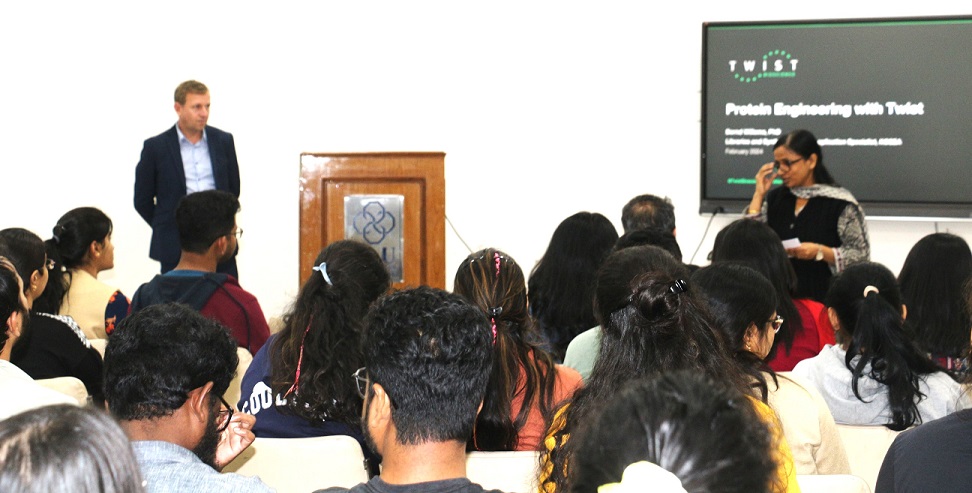
Faculty of Life Sciences & Biotechnology (FLSB)
The current millennium is the age of biological sciences. Today, we have the conceptual, experimental and mathematical tools to understand the complexity of inputs that go into the integrated study of the Science of Life. Also, with changing modes of production and climate change, the role of Life Sciences is increasing rapidly to the extent that our long-term wellbeing would be highly dependent on our understanding of the biological processes. The distinction between basic knowledge and its application towards the betterment of human existence has mostly ceased to exist.
The Faculty trains postgraduate students in a wide spectrum of Life Sciences. The endeavor of the Faculty is to teach the latest concepts and research technologies and prepare the students for careers in research and teaching in modern biology and biotechnology. The areas covered includes Molecular and Cellular Biology; Biochemistry; Biostatistics, Microbiology and Immunology; Molecular Medicine; Genetic Engineering Biotechnology in plants; Neurosciences; Cancer Biology; Environmental Biotechnology; Stem cell Biology; Fermentation and Biochemical Engineering; Chemical Biology, Virology, Structural Biology and Synthetic Biology. In addition to the theory courses, a major component of our curriculum is Laboratory Techniques. Students are also offered research training in the form of two semesters M.Sc. project work so that they may explore their career in the eld of research and starting their own enterprises as creative entrepreneurs.
The Faculty trains postgraduate students in a wide spectrum of Life Sciences. The endeavor of the Faculty is to teach the latest concepts and research technologies and prepare the students for careers in research and teaching in modern biology and biotechnology. The areas covered includes Molecular and Cellular Biology; Biotechnology; Microbiology and Immunology; Molecular Medicine; Genomics, Genetics and Evolutionary Biology; Biotechnology in plants; Neurosciences; Cancer Biology; Ecology and Biodiversity; Stem cell Biology; Fermentation and Biochemical engineering; Structural Biology and Synthetic Biology. Students are offered training in intellectual property rights and entrepreneurship so that they may also explore starting their own enterprises as creative entrepreneurs.
FE
Faculty of Economics
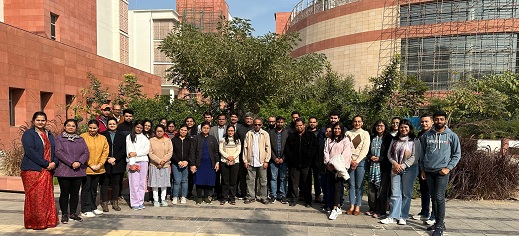
Faculty of Economics (FE)
The Faculty of Economics offers a unique Master’s programme in Economics with specialisation in Economic Development and a PhD programme in Economics.
The programmes introduce students to the intellectual breadth, theoretical rigor, and empirical skills that are necessary for conducting advanced research, teaching, and working on issues of economic development in the South Asian region. With a vibrant community of scholars and students from all over South Asia, the Faculty strives to emerge as a major center of higher learning in this region. The students graduating from the programmes in the Faculty will be well trained to join academia, corporate sector, or international and national development agencies and policy think tanks.


The Faculty has the right mix of youth and experience. The small student teacher ratio, which is unparalleled in other institutions in this region, provides opportunity for students and faculty members to have regular personal interactions both within and outside classrooms.
The students have access to a well-stocked library, a wide range of electronic resources, and a state-of-the-art computer laboratory. The Faculty is also in the process of building up a comprehensive documentation and reference center with special emphasis on the SAARC region
DS
Department of Sociology
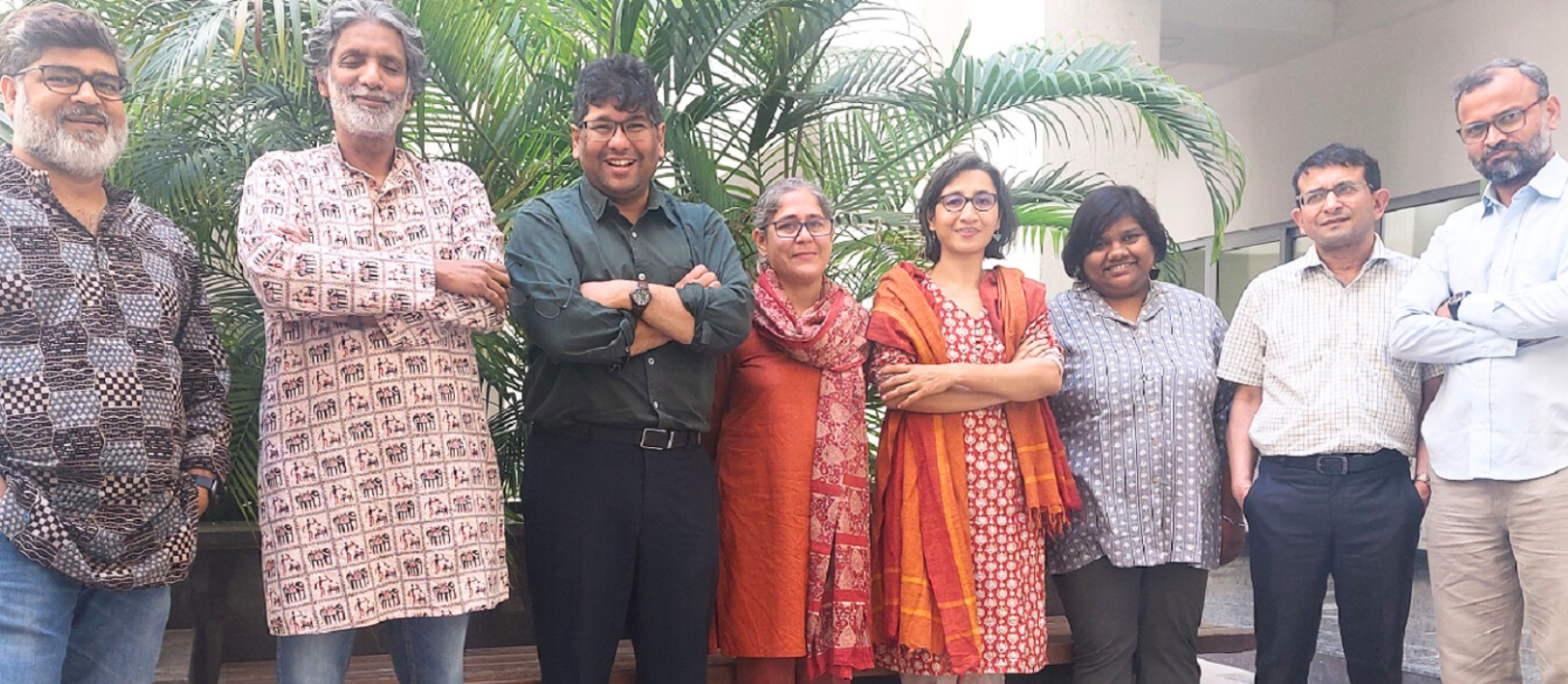
Department of Sociology
Vision
Over the last half century or so, a vast body of knowledge(s) on the region has evolved within South Asia that mostly remain within the countries of their origin due to a number of reasons. In this specific context, there is a crucial need to share some of this knowledge in contemporary times when, despite assertions of localizations and mini-narratives, the universal does retain its emphasis through a constant dialectics of the two. The debate between the local and universal or mini-narratives and meta-narratives continue to rage, and is more clearly visible in within the South Asian context. Even so, we are acutely aware of the non-existence of regular and serious forums for South Asian scholarship in social sciences to showcase our own research and thinking. We are also quite conscious of the fact that the process of establishing sociology in the region has created its own peculiarities which has established close inter-relationships between sociology and social anthropology, history, cultural studies, archeology and other related disciplines. We consider the porousness of South Asian sociology one of its most enduring strengths. On the other hand, we are not unaware of the unfortunate regressions sociology has experienced in different South Asian contexts over the last 30 years or so marked by numerous institutional failures.
It is within the context(s) outlined above that the Department of Sociology at South Asian University began its contributions to teaching, training and knowledge production in 2011. The department not only provides a forum for the production of cutting-edge intellectual knowledge and exchange of that knowledge traversing across national borders in South Asia and beyond, but also strives through this knowledge to dislocate the persistence of an imposed framework emanating from the colonisation process and postcolonial politics of knowledge. Despite the passage of over fifty years since the process of official decolonization began in the region, much of the readings of our problems, issues and histories originate from Euro American academia. This is very clearly visible when taking into account conceptual formulations and theoretical approaches that are utilized in exploring the region’s social and cultural complexities.
The Department of Sociology strongly believes in the need to reformulate this situation by effectively centering South Asia without naively shunning thought from these established centers of knowledge be they in Europe or North America. We believe in an active and robust engagement with these issues within South Asia. In this context, through the work of its faculty and the research of graduate students, the Department creates a forum for the newer forms of knowledge that comprehends and represents the South Asian context with a more authoritative and nuanced voice. We strongly believe in the need to actively intervene in the process of knowledge formation through a constant sharing of knowledge that the region produces as well as through interaction with the world beyond the region.
The courses taught in the department as well as the research carried out by its faculty members reflect this overall vision and our collective commitment towards innovation, move beyond untenable stereotypes, and explore a new world of knowledge within the discipline of Sociology.

Expectations
Our expectations are essentially formulated within the mission outlined above. We will strive to offer the best possible and the most nuanced and creative teaching program in sociology in the region. We expect our students to make the most of what we have to offer. We hope that the two years students spend with us would be an enriching intellectual experience for all of us. In this context, we invite our students to carry on active dialogues with our faculty members within and beyond the classroom. However, the department should not only be perceived as forum for formal knowledge in sociology. We encourage our students to also consider our department an active forum for their creative energies, be that writing, drama, music, dance, photography, blogging or anything else. On our part, we would continue to find avenues for these energies within and beyond the department as we have already done to a certain extent.
We are confident that the training as well as the cultural and social experience we offer will open avenues for our students for further advanced training in the region or beyond as well as employment opportunities in the public, private and civil society sectors in the region.
Come, join our postgraduate programmes and feel the difference!

FLS
Faculty of Legal Studies
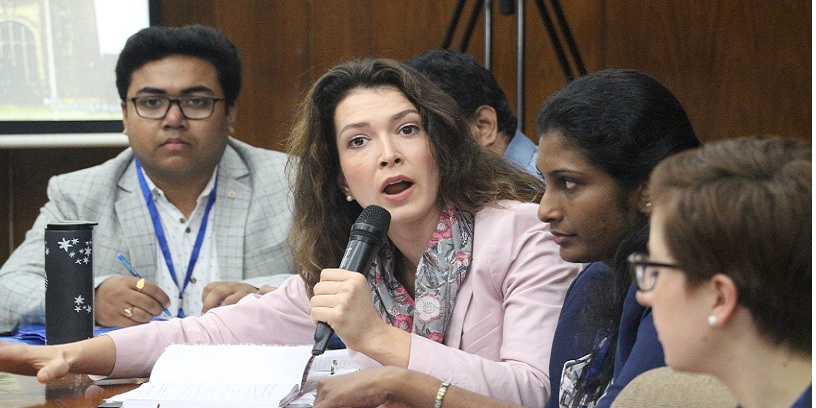
Faculty of Legal Studies (FLS)
Vision
The study of law at South Asian University aims at an analytical understanding of the subjects, systems, theories and institutions in this field. Towards this end, the Faculty of Legal Studies has introduced the LL.M Programme with an emphasis on international law. It is widely known that international law has become the common language of relations between states and other subjects. Keeping this in view, the Programme is sensitive to the perspective of South Asian countries. It is believed that the countries of the South Asian region would be able to explore new areas of cooperation if the study of their common legal problems is pursued with greater commitment. To be able to build a strong foundation for future research abilities of students in the region, the Faculty focuses on some important areas of international law as part of the LL.M course structure.
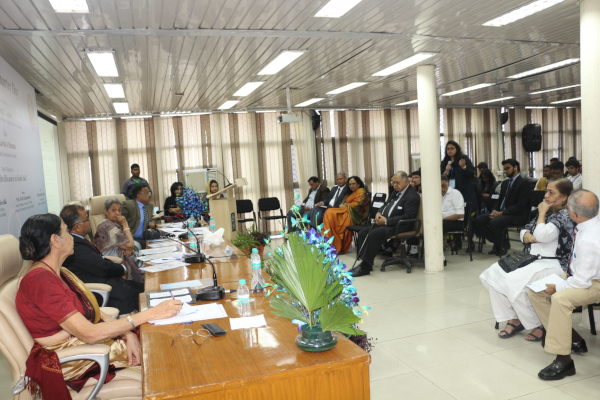
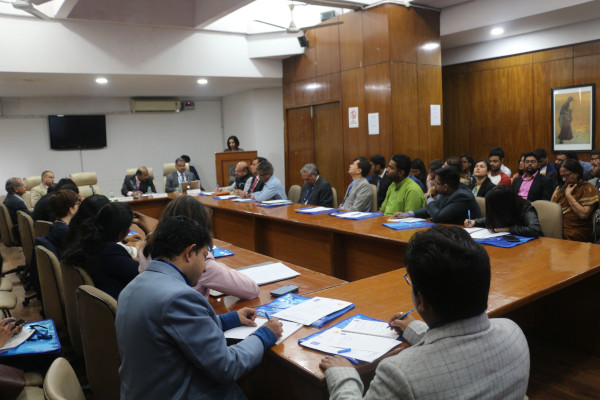
Among the courses offered by the Faculty are: General Principles of International Law, International Trade Law, Law of International Organisations, International Human Rights Law, International Humanitarian, International Criminal Law, Law of the Sea, Private International Law, Intellectual Property Law, and Legal Theory and Jurisprudence. The Faculty equally emphasises on developing an interdisciplinary approach to the study of law in general and international law in particular. Further, the Faculty offers some innovative courses such as Comparative Constitutional Law of South Asian countries.
Apart from traditional pedagogic methods of teaching, the Faculty adopts seminar methods, wherein weekly legal discourses are organised. Eminent law scholars from India and abroad are invited to interact with faculty and students. The Faculty also organises discussions on contemporary legal problems, through joint seminars with other institutions. Further, the Faculty intends to engage the available human resources in the region and other parts of the world to contribute towards establishing centres of excellence in the field of international law and other important fields of law.
Faculties (Planned but not yet started)
- Faculty of Earth System Sciences
- Faculty of Physical and Chemical Sciences
- Faculty of Arts and Design
- Faculty of Management
- Faculty of Humanities
- Faculty of Undergraduate Studies
- Institute of South Asian Studies
Faculties (Accepted in principle but not yet planned)
- Faculty of Engineering & Technology
- Faculty of Medical and Health Sciences
